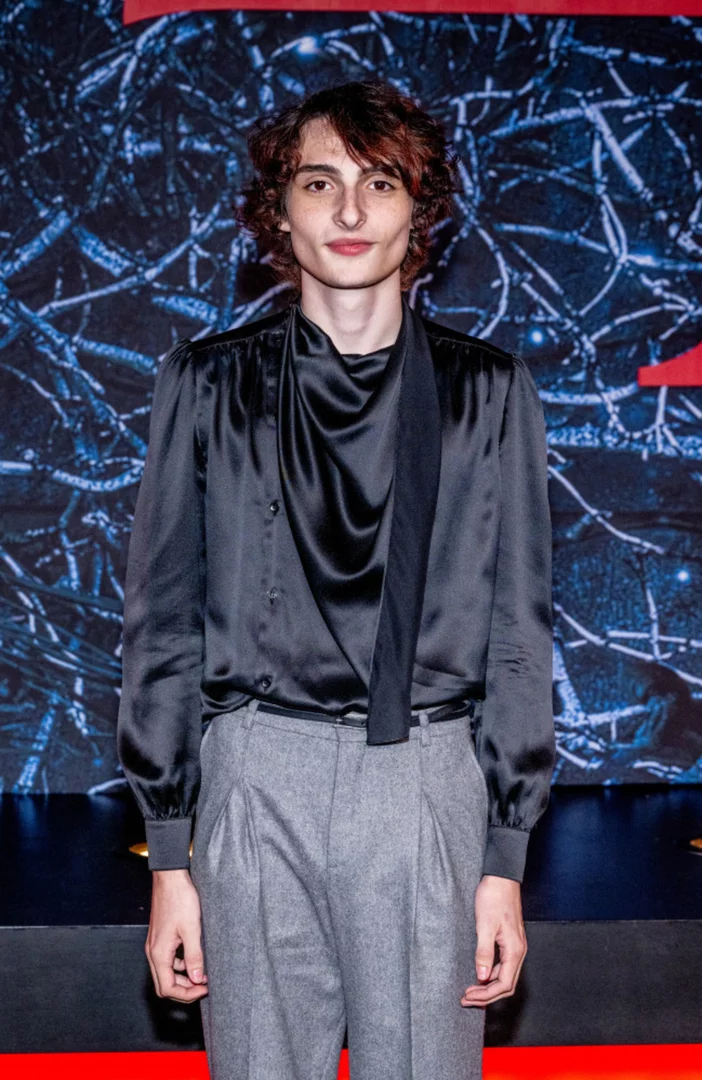Have you been called a "girl's girl" yet? If pop culture is any proof, winning the title of girl's girl is quickly emerging as the highest level of a compliment. So what exactly is a girl's girl? She checks on you at a party. She holds your hair back when you're sick. You can depend on her to be honest with you if your partner is cheating. She'll never hate you for how you look and will always tell you if there's something in your teeth. She's your absolute ride or die. Side note: she exists in a primarily heteronormative society.
On TikTok the hashtag #GirlsGirl has 646 million views, but the phrase isn't just ubiquitous online. IRL too, celebrities (and celeb-adjacents) have been throwing the term around. But, what does it really mean? And does it really matter if we don't fit the girl's girl bill?
Recently, in a cover interview with Variety, Ice Spice told the magazine that many rappers pretend to be girls' girls. "People want to be all ‘I'm a girl's girl,’ but then behind the scenes being bitches. I feel like the competition is what keeps us all excited because I think we all secretly enjoy competing and seeing who puts that shit on better and who's gon’ get the most views," the singer said.
SEE ALSO: TikTok convinced me I had seen the best of Taylor Swift's 'The Eras Tour.' Until I saw it in theaters.At the tail end of September, when rumors of Taylor Swift and Travis Kelce dating first surfaced, Kelce's ex Maya Benberry told the Daily Mail that the footballer had cheated on her. In an attempt to warn Swift, Benberry added, "Taylor seems like such a fun girl with a beautiful spirit so I wish her the best of luck but I wouldn’t be a girls' girl if I didn’t advise her to be smart." This is hardly the first time that the term girl's girl was used in the context of a celebrity relationship.
In July 2023, when the unverified rumors and blind items of Ariana Grande and her Wicked co-star Ethan Slater allegedly dating first emerged, Slater's estranged wife Lilly Jay told Page Six, "[Ariana’s] the story really. Not a girl’s girl. My family is just collateral damage." This comment stirred chaos on the internet; several fans posted videos theorizing about why Grande isn't a 'girl's girl'. In some ways, this glorified use of the girl's girl phrase feeds into the patriarchal system that vilifies women, making them the sole bearer of blame while absolving men of any responsibility. The shame and scrutiny that Grande faced was grossly disproportionate to Slater.
Clearly, there's a lot of pressure to be seen as a girl's girl and flak abounds when you appear to fail to do so correctly. But why does it matter?
"Throughout popular culture, women and girls are positioned as being in 'competition' with one another."At its core, being a girl's girl means being a reliable friend, someone you can count on for honesty and support. You may wonder: doesn't this just mean being a decent person? For the most part yes, but there's a reason why the category is gaining steam in the present day. Think back to the early 2000s when trends demanded women denounce their femininity. The cool girl – who loved hanging out with the boys and hated pink – ruled the zeitgeist. Today the internet calls this person the "pick me" girl: she thrives on being different (read: better) from other girls and seeks male validation. According to Dr. Amelia Morris — lecturer in media and communications at the University of Exeter who studies the relationship between pop culture and socio economic imbalances — this system of women being pitted against each other forms the fabric of a heteronormative society.
"Throughout popular culture, women and girls are positioned as being in 'competition' with one another…The term 'bitchy' is itself inextricably gendered, conflating femininity with malice (see the plethora of online articles advising parents on how 'not to raise bitchy girls'), whilst it is assumed that men enjoy 'relaxed' and 'easy going' relationships," Morris explains. In contrast, the 2020s are (so far) a decade of peak girlification. Greta Gerwig's Barbie brought pink and hyper-femme solidarity to the forefront while online trends like girl dinner, hot girl walk and girl math position similarities among women as a celebration.
"Within the heteronormative context the term 'girl's girl' speaks to a femme solidarity that recognises platonic friendships as being as important as a romantic partner, creating space for navigating life under patriarchal capitalism," Morris says. Today, nothing is cooler than hanging out with your girlies. Guides on TikTok tell you how to reach this cult status while other creators warn you of people pretending to be supportive: they behave differently in front of men, point out your insecurities, or greet your boyfriend before they greet you.
Are girls' girls actually becoming bullies?
In a video, TikToker Kelly Kim says if an acquaintance adds your love interest to their close friends list within 48 hours of meeting them, they are not a girl's girl and "have to go". She tells Mashable, "At the start of the trend, if someone said they were a girl's girl I instantly trusted them more, it made them more approachable. But now, the phrase has become an easy way to talk about someone who isn't a girl's girl and who you should be wary of."
Another post with the caption "girl's girls 101" shames women for saying that they’re hot and have their shit together. In the video, the creator said “in the kindest way possible, it’s the most pick me shit ever.” This is where the categorisation gets tricky. In theory being a "girl's girl" is positive: it’s women supporting women. But it also leaves a vast gap in defining what a supportive woman looks like, especially when digital cultures are so diverse and include different understandings of solidarity.
As the term gains popularity, it's being weaponized to condemn women for not fitting a rigid, often arbitrary idea of what a "girl's girl" should look like – as in the case of Ariana Grande and the hate that was unleashed in the wake of the unverified rumors or the TikTok videos that slut shame women. In positioning itself as an antithesis to the "pick me" girl, the "girl's girl" trend sets itself up for failure. Through overwhelming patterns of "othering" and looking down upon a certain brand of women, the trend embroils itself in the very misogyny that it was hoping to dismantle.
Psychologist Eloise Skinner explains, "The phrase is being used to pull apart women who behave in a way that is considered to be the opposite of the 'girl's girl' whether that's wanting male attention, disassociating themselves from traditionally 'girly' traits or being competitive with other girls. This can leave women feeling isolated and shamed."
The impact of internalized misogyny
Using the phrase also exerts a certain amount of pressure and responsibility to return the favor.
For instance, Benberry publicly warning Swift under the guise of being a girl's girl also lays a liability on the singer. It leaves the ball in her court suggesting that a fellow girl's girl would never date a man who has treated another woman "poorly" – however this is defined.
Through her decades-long career, Swift has been seen as a girl's girl (think of the early squad), criticized for being one (think of how White the squad was) and been relentlessly slut shamed, so much so that she's written songs about it. Still, every time Swift allegedly dated a controversial man (Matty Healy), the blame impacted her disproportionately.
Similarly, while Grande and Slater are consenting adults, popular media has placed the onus of the relationship on Grande alone, holding her accountable for the end of Slater's marriage as well as her own. Flag bearers of the 'girl's girl' trend that hold women to unrealistic standards contribute to this bias.
"Some aspects of the 'girl's girl' trend (such as women not 'knowing/realizing' that they are attractive) is reflective of the virgin/whore dichotomy, wherein women have historically been positioned as either 'good' (read: sexually 'pure' and modest) or 'bad' (sexually 'promiscuous' and self-assured, particularly regarding their appearance)," explains Morris. This internalized misogyny seems to shape the shame and guilt that some girl's girls use in their critique of other women.
But instead of canceling the girl's girl' or placing it on a moral pedestal, the trend – just like countless others – should be viewed with nuance. In the face of everything that's wrong with the world, romanticizing female friendships, having snacks for dinner or going on long walks is a welcome relief. It should be seen as just that, a momentary, feel-good trend, not an instructive, idolized cult.
"We're constantly encouraged to define, identify and project ourselves so it's not surprising that a trend based on categorisation of behavior is popular," says Skinner. "It's important to remember, though, that we're all much more complex and nuanced than a minute-long TikTok video would allow us to capture, and we should prioritize figuring out who we are (away from the public lens of social media, perhaps), and allowing others the space to do the same."









